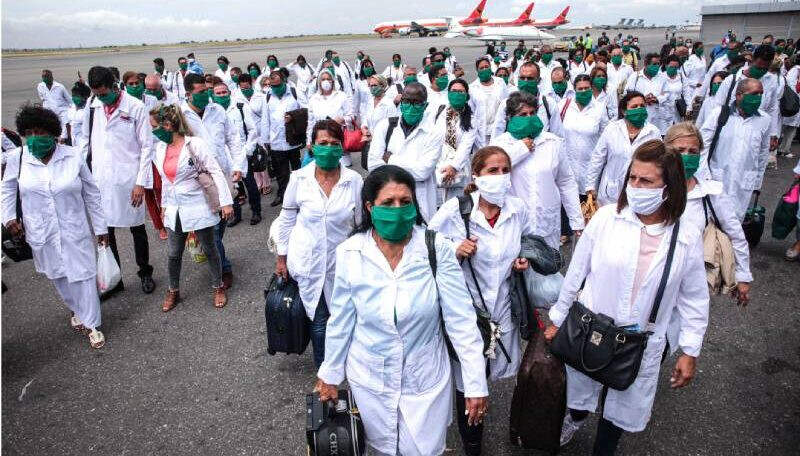
Havana, Cuba – Cuba's healthcare system, once a beacon of public health in the developing world, is facing an unprecedented crisis as thousands of medical professionals have abandoned the country in recent years. According to the latest data released by the National Office of Statistics and Information (ONEI), nearly 15,000 doctors left Cuba's public health system in 2023 alone.
The exodus has led to a severe shortage of medical personnel across the island, with the number of doctors per capita rising from 113 in 2022 to 127 in 2023. This means that Cubans now have less access to quality healthcare than ever before.
Factors Contributing to the Crisis
Several factors have contributed to the mass exodus of Cuban medical professionals. These include:
Economic hardships: Cuba's prolonged economic crisis has led to severe shortages of basic necessities, including food, medicine, and medical supplies. Healthcare workers have been particularly hard hit by these shortages, as they have been unable to provide their patients with the care they need.
Low wages: Cuban doctors are paid significantly less than their counterparts in other countries, making it difficult for them to support their families.
Lack of freedom: The Cuban government has long restricted the movement of its citizens, and medical professionals are no exception. Many doctors have left the country in search of greater freedom and opportunity.
Political repression: The Cuban government has cracked down on dissent in recent years, and healthcare workers have not been immune to this repression. Many doctors have feared for their safety and the safety of their families if they remained in Cuba.
The Impact on Cubans
The shortage of medical professionals has had a devastating impact on the Cuban people. Hospitals and clinics are understaffed and overcrowded, and many Cubans are unable to access the care they need. This has led to a rise in preventable diseases and a decline in life expectancy.
Irony of Exporting Healthcare Workers
Despite the dire state of its own healthcare system, the Cuban government continues to export medical professionals to other countries. These doctors are often sent to work in remote and underserved areas, where they are paid significantly less than their Cuban counterparts.
The Cuban government has defended this practice, arguing that it is a form of international solidarity. However, critics have accused the government of exploiting its medical professionals for political and economic gain.
Looking Ahead
The future of Cuba's healthcare system is uncertain. Unless the government takes urgent steps to address the underlying causes of the crisis, the exodus of medical professionals is likely to continue. This could have devastating consequences for the Cuban people.
[Copyright (c) Global Economic Times. All Rights Reserved.]




























